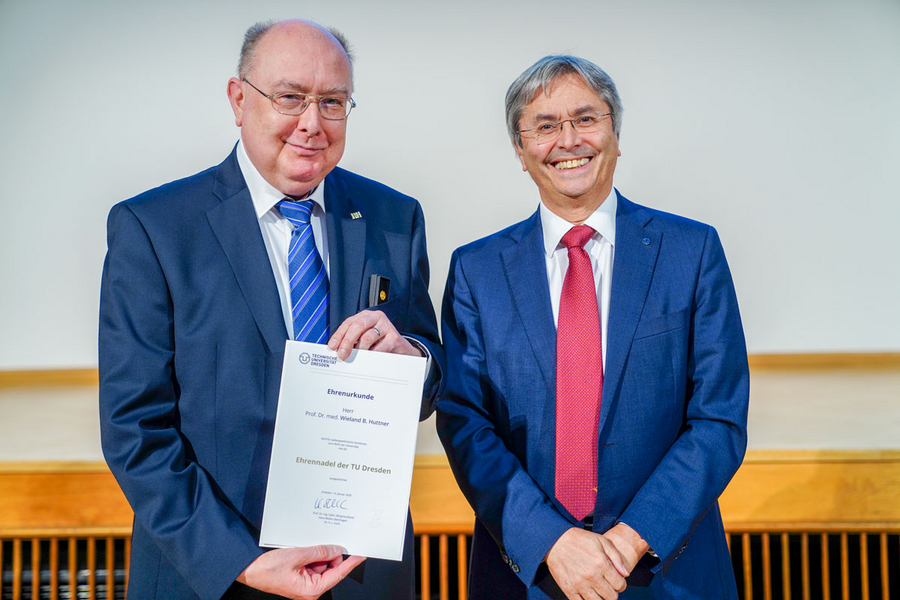
Photo: André Wirsig
At the TU Dresden's New Year's Reception on 13 January 2020 in the Dülferstraße celebration hall, the Golden Badge of Honour was awarded for the first time to members of the TU Dresden who have made outstanding contributions to the benefit of the university. The Badge of Honour recognizes particularly outstanding individual achievements that go far beyond the expected.
One of the recipients of the Badge of Honour is Prof. Dr. med. Wieland Huttner, one of the founding directors of the MPI-CBG. He was a director at the MPI-CBG from 1998 to 2018 and is honorary professor at the TU Dresden. The foundation of the scientific network DRESDEN-concept e. V., which today serves as a model for cooperation between a university and non-university research institutions throughout Germany, was mainly initiated by Prof. Huttner. Until December 2, 2019, he was a member of the board of directors and continually encouraged the deepening of the cooperation between the DRESDEN-concept partner institutions. Furthermore, he was one of the key authors of the Institutional Strategy, which created the basis for the TU Dresden achieving Excellence Status in 2012. Prof. Huttner was also instrumental in the establishment of excellent doctoral programs in Dresden. He was the founder, and for many years the speaker, of one of the first International Max Planck Research Schools (IMPRS) in Germany. With its two partner programs, the International Max Planck Research School and the Dresden International Graduate School for Biomedicine and Bioengineering (DIGS-BB), Dresden is today one of the most important and internationally renowned locations for the qualification of doctoral students in the life sciences. In this dual position as a member of the university and as director of a large non-university research institution, Prof. Huttner has made a great contribution to the TU Dresden.
At the TU Dresden the following honours previously existed: Honorary Senator, Honorary Citizen, Medal of Honour. The creation of the Golden Badge of Honour is intended as a supplement to the other forms of honour. In contrast to the Medal of Honour, the Badge of Honour recognizes individual achievements that are particularly worth mentioning. It is ranked lower than the Medal of Honour. No rights or duties of the honored person are attached with the award of the honour. Up to eight Golden Badges of Honour may be awarded each year. The Rectorate, the Departments/Faculties or at least five members of the Senate are entitled to nominate. The Senate decides on the proposals submitted in writing to the Rector after approval by the Rectorate.